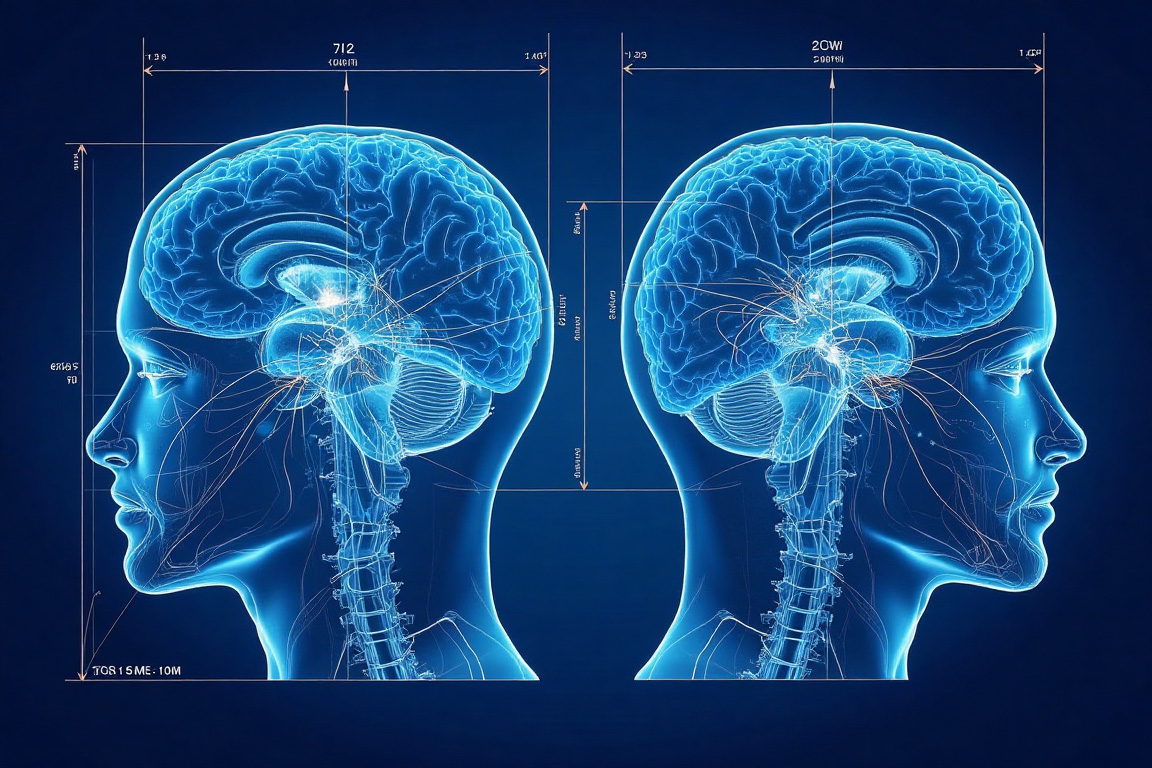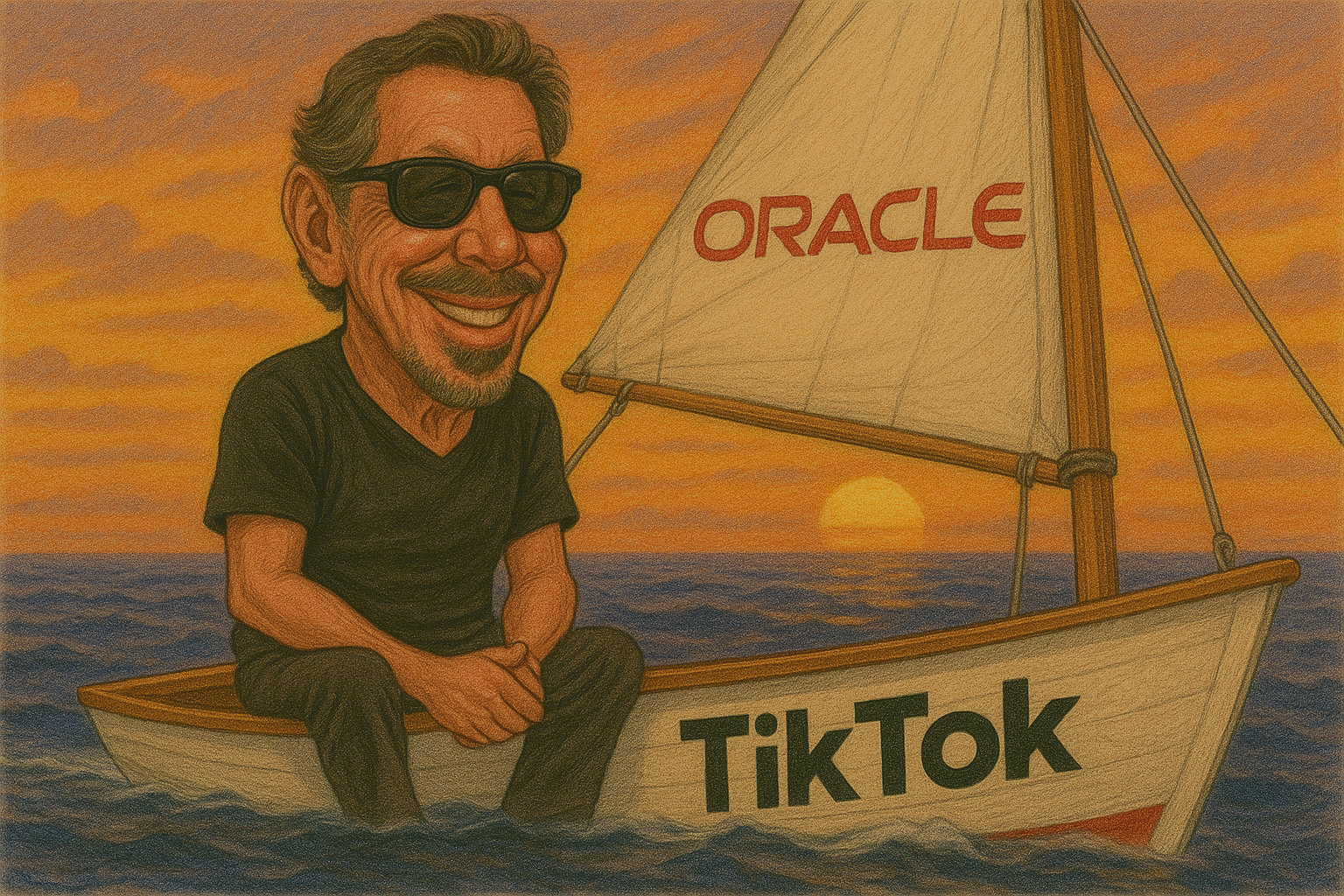What do you give the man who has everything?
There was an old joke in the 1990s (which is effectively the Jurassic era in tech terms), that the purpose of Larry Ellison was so that Bill Gates couild know how rich he was. The quarter-century standoff between the two men effectively came to an end in 2023 when Ellison, at that point worth nearly $130 billion, surpassed Gates to become the fourth richest man in the world. Since then, the once and future king of Oracle, the company he founded in 1977 (and stepped down from as CEO in 2014) has continued to become richer, becoming the wealthiest man in the world for a day on September 10, 2025, when his net worth of $393 billion briefly surpassed Elon Musk's pithering $385 billion.
The reason for this sudden surge was the boost to Oracle's shares in the wake of years dedicated to building up data centres with the company's infrastructure helping to drive the American boom in AI. Ellison started Oracle in 1977 with Bob Miner and Ed Oates and played a key role in developing database software which became the foundation powering much of the internet and then artificial intelligence. He led the company as CEO for almost 40 years, turning it into a global leader through new ideas and major acquisitions like PeopleSoft, Sun Microsystems, and NetSuite. After stepping down as CEO in 2014, he stayed active in the company as Executive Chairman and Chief Technology Officer.
While he may have been eclipsed for a long time in the tech world by Gates, outside his life could hardly have been more pointedly different: flying planes, buying luxury properties, and competing in sailing, where his Oracle Team USA won the America’s Cup, he was the epitome of the tech mogul while Elon Musk was still a gleam in PayPal's eye. Ellison has donated much of his fortune to charity, especially for medical research and education - although as several commentators have observed, unlike Gates, his oft-repeated 2010 pledge to give away the vast majority of his wealth has yet to materialise. Perhaps that's unsurprising: for a man who once said that such vast wealth is a means of "keeping score", rapid dematerialisation would - as Bill Gates has demonstrated - remove his ability to hit the top spot once more when Elon Musk finally crashes and burns.
While Ellison's money has bought him a great deal, not least the Hawaiian island of Lanaii, unlike Musk - or, indeed, Gates and Microsoft's partnership with NBC in the late 90s and early 2000s - it has not gifted him a media platform. Until now.
At the end of September, Oracle was announced as one of the major shareholders in a deal that saw TikTok in the USA pass into American ownership, alongside other investors such as US private equity firm Silver Lake and Abu Dhabi investment firm MGX. The deal, which valued Beijing-based ByteDance's most famous product at a mere £14 billion (well under its potential), has been criticised as a shakedown by some but brings to an end the limbo in which TikTok found itself after a bill banning the platform was passed by Congress in April 2024 and came into effect in January 2025. It was then that newly inaugurated president Trump signed an executive order temporarily suspending the ban until new buyers could be found.
Big Media gets into bed with Big Tech. Again.
To present Ellison as a media ingénue because he hadn't acquired his own equivalent of X is, of course, deeply misleading, not least because his son, David, is about to become one of the most important figures in the media world. With long experience as a producer of Hollywood blockbusters such as Mission Impossible and World War Z, his company Skydance Media merged with Paramount in a deal which saw David Ellison take control over CBS, Paramount Pictures and CBS. Possibly to sweeten the deal, Paramount had already agreed to pay $16 million to settle a legal dispute with Donald Trump and - once the contracts were signed - promptly fired Stephen Colbert, a longstanding critic of the president. (To be fair to Paramount, who said that the move was "purely a financial decision against a challenging backdrop in late night [television]", Colbert's viewing figures had been tanking for years.)
With a controlling majority (alongside Silver Lake and MGX), the Ellison clan is likely to become one of the most powerful families in the media world, rivalling the Murdoch's in their reach. TikTok had been running on Oracle servers since at least late 2022, and although final statistics vary somewhat it was clear that by early 2025 the USA had become ByteDance's most popular market, with an estimated 130-180 million active users each month - or between two fifths and a half of the population. As a substantial proportion of users were younger, with some 60 percent identifying as Gen Z, various parts of the media have been awash with claims that the takeover was driven by a desire to censor the platform, particularly in the light of what was seen as pro-Palestinian content. Such claims were given greater validity in the eyes of critics by the fact that Ellison has long been a fervent supporter of Israel (though out of admiration for its tech culture rather than religious reasons), but a longer standing concern with the platform was always a worry that it could be used to promote Chinese values.
Not everyone agreed. The Electronic Frontier Foundation immediately issued a statement condemning the sale as an attack on US freedom of speech and remarking that "TikTok was never proven to be a current national security problem". Not for the first time, I wonder whether the EFF is being somehwat disingenious - and I speak as a big fan of TikTok. Concerns about the platform had long pre-dated the current Gaza war and it was banned in India in 2020 following border clashes between the two nations. Nor has ByteDance been entirely honest about its dealings with user data, having been fined €530 by the Irish Data Protection Commission for transferring the private data of EU citizens back to mainland China.
To repeat: I'm a huge fan of TikTok, but ByteDance was never the people's friend (as opposed to the People's Republic of China). I am equally no fan of the transfer of TikTok to a new Big Media Tech mogul family, especially one who infamously remarked that "citizens will be on their best behavior" amid constant recording: handing over the keys to another social media engine is but one more nail in the coffin of US citizens' privacy. It is part of a rising tide in the twenty-first century, where media companies are bought out and become the playthings of tech billionaires: Elon Musk's X is but the most notorious, and Jeff Bezos's proprietorship of The Washington Post perhaps the most estemmed. Across the USA (and much of Europe too), vast swathes of the media are owned by apparently all-powerful billionaire princes, a return to the gilded age when figures such as Vanderbilt and Carnegie could buy up their own newspapers.
It is certainly the case that as fewer and fewer tycoons own more and more of the media, the options for a true media pluralism and a vibrant public sphere that is not controlled by governments or the wealthy diminish. And yet, the power of the media is often overstated - or, perhaps more accurately, misstated. Look at the recent example of Jimmy Kimmel: suspended because of some remarks about Charlie Kirk and barely concealed threats by the Trump-installed head of the FCC, Brendan Carr, Kimmel's case became a cause célèbre for free speech advocates and delivered him even larger audiences on his return to television. And what of the example of American attitudes to Palestine (one of the supposed reasons for the TikTok takeover)? While Benjamin Netanyahu may utter dark imprecations against Chinese and Qatari propaganda (for which read TikTok and Al Jazeera), most editors and proprietors have been sympathetic to Israel for years, yet that hasn't stopped a slide in public support in recent months as the horrific war in Gaza continues.
Too many assume that media effects - with users mainlining propaganda straight from their phones - rather than considering the uses and gratifications that those same users desire. Paramount and others may seek to curry favour with the Trump administration, but as Disney discovered with Kimmel, they may have plenty of paying customers who are more than happy to go elsewhere if they don't get what they want. Conservatives has long looked to Hungary as a model for media strategies, with Viktor Orbán regularly telling fellow travellers that they need to own their own media, but that is much easier to do when your national media has a restricted language base. America is too big, English-language media too diverse and too distributed, for even a bunch of billionaires to determine what everyone thinks (Elon Musk's remarkable electoral success post-Trump springs to mind). I have no doubt that one ambition of the TikTok buyout is to remove one possible source of views that could damage Trump and his allies. I equally have no doubt that changes in comms channels will have much of an impact on the American mid-terms if the US economy keeps losing jobs over the next year.


